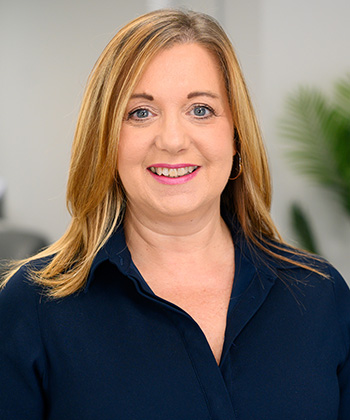You and your colleagues are sitting opposite a candidate who has stood out through your recruitment agency’s checks and the initial ‘CV sifts’. But now you’re at the interview stage how do you decide if they really are right for the job?
…With targeted interview techniques and questions of course. It’s the old HR saying again:
Ask right to hire right.
We provide more guidance on the techniques of interviewing below but, at a glance, here are a few you should consider:
Interview techniques for employers
- Review how your employer brand is reflected during the interview process
- Ensure the candidate experience provides a positive impression of your organisation
- Be clear on what you want to take away from the interview
- Plan your interview questions
- Choose the right environment for the interview
- Create an interview framework – and stick to it!
- Thoroughly review each interviewee’s CV, highlighting points of interest that you would like to learn more about
- Actively listen to responses
- Analyse non-verbal communication
- Invite the candidate to ask questions
- Confirm any next steps
To help you conduct your next interview, we’ve created some interview templates and interview guides, which we hope will help you – the employer – through interviews. With advice on interview techniques, interview guide templates and an overview of interview questions this resource is a go-to reference for employers looking to improve the interview process.
Hopefully, by using this guide you’ll feel you know your candidate after an interview: their potential and any pitfalls. All in all, helping you to make the right hiring decision.
Scroll down to find the following information below:
- Interview guide template
- How to strengthen your interview objectives
- How to ask a candidate about their experience
- Should you request a presentation at interview?
- Understanding the candidate’s ability
- Sample questions to test soft skills
- Four interesting facts about hiring and interviews
- More unusual interview questions
If there are any other resources you would like to see in our guide to interview techniques for employers, get in touch and let us know.
Interview guide template
We’ve created a downloadable, free interview guide template to help you track and manage the interview process. The downloadable interview guide template is completely editable, so you can white label it for your company whilst editing the requirements depending on the role you’re hiring for.
The interview guide template includes a:
- Pre-interview checklist
- Interview opening checklist
- Background and experience template
- Soft skills template
- Situational questions template
- Motivation template
- Interview close checklist
- Post interview summary and overall match guide
Please fill out the form below to download the interview guide template now
A link for you to download the interview guide template will be sent to you via an email. Please wait a few moments to receive the email and then follow the instructions.
How to strengthen your interview objectives
Your objectives should be laid out when you first recognise the need for a new employee – those objectives should be in line with your wider recruitment strategy and sit comfortably supporting your overall corporate strategy.
Start by clearly laying out what you need, both now and according to your corporate strategy. Simply stating that you “need to replace so-and-so who left” won’t help you understand what skills you’re looking for.
Ask yourself:
- What responsibilities will the role involve and what skills will be required to manage those responsibilities?
- What soft skills does your current team have and what type of person will work well with them?
- Is it realistic to expect one individual to fulfill the role? Or do you need to recruit more team members?
- Is the person specification you’re laying out realistic? If not, do you need to reconsider the job role, salary or benefits?
- Is there a certain timeframe by which you need the new hire to start?
Once you’ve answered those questions, you should lay out your objectives so they fit a SMART framework:
Specific, Measurable, Achievable, Relevant and within a Timeframe.
How to ask a candidate about their experience
Asking a candidate about their previous roles gives you the opportunity to dig a little deeper into their CV. You’ll want to understand how the candidate achieved those fantastic results for their previous company and what were the most valuable lessons they learnt.
For example try asking:
“How do you stay up to date with industry trends? Please can you give me an example when staying current has helped you.”
This is a great interview question for employers looking to understand a candidate’s dedication to continuing professional development. Hopefully the candidate’s answer will demonstrate previous experiences where their techniques for self-learning have helped them stay on trend and succeed in their role.
“What has been your biggest career success?”
Here you’re looking to find out what the candidate considers to be their most important achievement – and whether they take into consideration the relevancy of this achievement to the role you’re hiring for. This sort of question can also help to boost the confidence of some candidates by giving them a topic that let’s them shine and talk about the best work they’ve completed.
Should you request a presentation at interview?
There are several reasons why presentations may be a good idea for your interview process. Ask yourself the next three questions – if you say yes to any of them it may be a good idea to request a presentation at interview.
Question 1: Do you need to test specific communication skills?
It can be all well and good asking a candidate to list the times they’ve used communication to resolve an issue or achieve a task. However, seeing those communication skills in action can be even more beneficial. A presentation can help highlight a candidate’s:
- Persuasive skills
- Confidence
- Ability to communicate clearly and coherently
- Potential to interact well with the rest of your team
Question 2: Do you need to test their knowledge of a specific area?
If the job role has a focus on a specific area, and you feel you need to get to grips with how knowledgeable the candidate is in that area, then a presentation may be a wise option.
Question 3: Do you need to see how they respond to a brief?
A lot of positions will require employees to regularly respond to new briefs. A presentation at interview can give you some insight in to how accurately the candidate interprets a brief and how well they perform under pressure.
Through a presentation you will also be able to gauge how well the candidate prepares according to the brief – have they put thought into their presentation and then executed it well?
Bonus tip
A presentation can often be effective at the second interview stage, when you are make a decision between a few select candidates. A presentation – or perhaps a brief test relevant to the job – will help you to understand more about how they would perform in your job.
Regardless of what stage in the interview process you’re at, always include something beyond a presentation at interview. A brief chat before and after presenting will give you the opportunity to ask questions and allow the candidate to look beyond their immediate presentation topic.
Understanding the candidate’s ability
Understanding whether the candidate has the ability to perform in your job role is a vital but also sensitive area of the interview process.
To achieve that you must keep your HR team up to date with relevant employment law, provide them with go-to information on what they can and cannot ask and offer a regular interview refresher session for anyone involved in the interviewing process.
It may be a good idea to bring in a HR consultant on these occasions to help consolidate your team’s interviewing skills.
Aside from keeping your HR team in the loop, it’s important to remember that every question you ask in an interview must only be relevant to the job you’re recruiting for. Never make any assumptions about a candidate’s ability or disability.
Top tip
Make sure every question you ask is tied to the job role and the job role’s requirements. Carefully plan your questions and use clear language that states the relevance of the question to the job.
Sample questions to test soft skills
Testing for soft-skills can be the trickier part of an interview. Typically, you’ll be looking for finer nuances in the candidate’s answer that will flag them up as either suitable or unsuitable for the role. In addition, the questions you ask will need to be carefully tailored to test for specific skills your company looks for.
Some of the typical soft skills organisations may look for in their next new hire include:
- Initiative
- Strong communication skills
- Integrity
- Leadership
- Persuasiveness
- Confidence
- Planning and pitching
- Responsiveness
- Great people management
- Decision-making
- Team orientated
One of the best ways to test for soft skills is to use situational questions. Ask candidates for an example of when they demonstrated a particular soft skill, without specifically mentioning the skill. For example:
“Can you tell me about a time when you had to ask for help?”
This question would test the individual’s ability to acknowledge mistakes or difficulties. Being able to ask for help and advice will be an important factor when a new employee is settling into their role.
“Can you describe to me an achievement you’re particularly proud of?”
Here the candidate should, perhaps with a little thought, be able to put forward an achievement that highlights skills relevant to the job. A particularly strong candidate will be aware that you’re looking for them to choose an achievement showing relevant skills. With this question, ask details about the achievement, if they had any particular hurdles to overcome to get there and what impact their achievement had on others.
“Can you tell me about a time when you had to support another team member?”
Your focus with a question of this type will be on the candidate’s ability to work as part of a team. Depending on the role you’re recruiting for, you’ll want to identify: leadership, an ability to form productive co-worker relationships or simply the ability to offer guidance in a structured and professional manner.
Four interesting facts about hiring and interviews
- Job benefits can be all important. In an Anne Corder Recruitment poll, 81 per cent of job seekers named flexible working as the most important company benefit. If you’re offering flexible working, make it known before and in the interview!
- While the average length of an interview is 40 minutes, 33% of 2000 surveyed bosses indicated they know within the first 90 seconds if they will hire that candidate, according to B2C.
- In a recent ACR survey, employers said a recruitment agency’s ‘ability to source high calibre candidates’ and ‘professionalism’ were their top priorities.
- A survey by the Institute for Leadership and Management highlighted that 31% of employees would be motivated to work harder if they received “better treatment from their employer” – including praise and a greater sense of being valued. So, make sure you show how you value your employees during interviews!
More unusual interview questions
Keeping the interviewee engaged is a must – not only in the interview itself but also with your ‘employer brand’.
Employer branding is all about how your company comes across to employees and candidates. If your employer brand is strong, your organisation will be considered a desirable place to work with an appealing work culture. Above all else, your employer brand should be authentic; there’s no point in making false promises to candidates about what your organisation can offer.
At interview stage, your employer brand should be clear and apparent. The candidate should get a feeling for what your company is like. A lot of that will be down to the questions you ask.
Generic interview questions are all well and good – they let you build the foundations in understanding the candidate. However, you’ll want to introduce some questions that grab the interviewee’s attention, gets them excited about working for your organisation and let’s you really learn more about them.
One quick way of thinking up some more unusual questions that will challenge and interest the candidate is to turn a more generic question on its head. For example:
Instead of: Where do you see yourself in five years time?
Try: Where do you not want to be in five years time?
Instead of: What attracted you to our organisation?
Try: What kind of working day would inspire you?
Instead of: What do you think is the strongest part of your CV?
Try: If you could change one thing on your CV, what would it be and why?
Alternatively, choose a skill that you’re looking for and work back from there. Have a read of these 25 tough interview questions in the Telegraph for a few examples.




